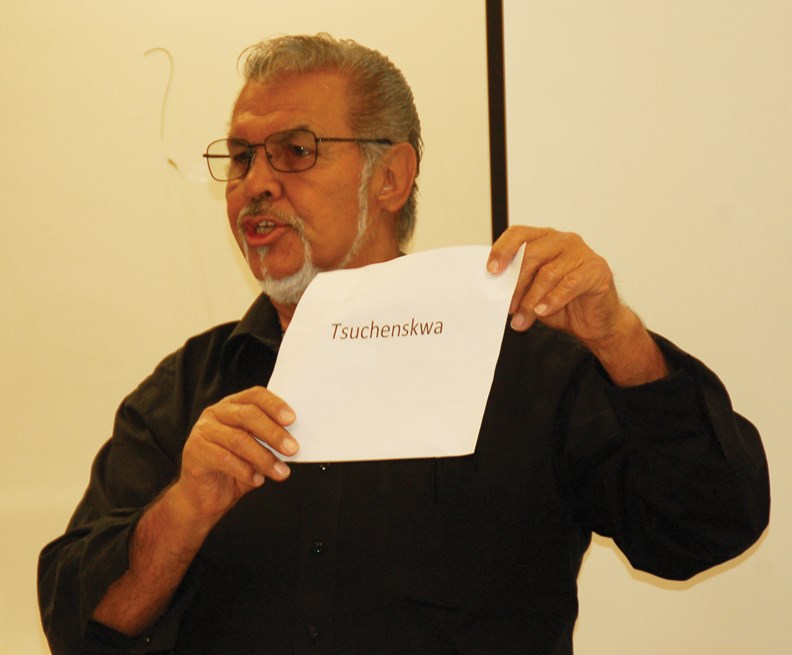Capilano University took time to remember and honour residential school survivors during the university’s Truth and Reconciliation Week held Sept. 19 to 23.
The week started with an 11 a.m. moment of silence observed at both the Sunshine Coast and North Vancouver Capilano University campuses.
According to a press release from Cap U, the moment of silence was meant to “remember the survivors of residential schools and to provide space and time to reaffirm our commitment to righting the wrongs of the past, healing the present, and building toward a better future.”
During the week, campuses held various workshops on truth and reconciliation and extended invitations to the community.
On the Coast campus, guests watched a powerful and at times disturbing video about the experiences of First Nations people in residential schools before taking part in a discussion about the film and then getting a Sechelt (shíshálh) Nation language lesson from elder Jamie Dixon on Sept. 23.
Dixon taught well known words like “?imash ?imash,” which means welcome and “?ulnumshchalap,” which means thank you all, as well as more tricky sayings like “tl’umskwala mes s?ilhten,” which means time to eat.
Dixon encouraged the class of about 20 community members to write the words while trying to say them in order to help the shíshálh terms stick.
He also explained that the shíshálh Nation doesn’t have a word for goodbye but instead says “tsula tsu” which means until next time. “For us saying goodbye means you’ll never see the person again,” Dixon explained.
Guests left the class practising newly learned words with an obvious desire to speak them properly as a way to honour shíshálh Nation members.
The Nation almost lost its language because children were forbidden to speak it while in residential school, but through a 40-year effort involving elders and linguist Ron Beaumont, a dictionary was produced in 2011.
Copies of the Sechelt Dictionary are available to borrow from local libraries or to buy from the shíshálh Nation’s education department. See more online at www.firstvoices.ca/en/she-shashishalhem



